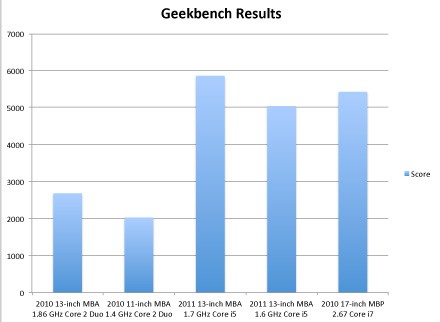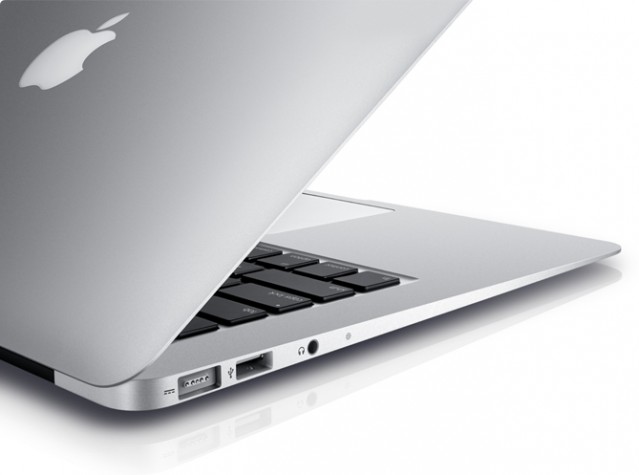Apple’s latest lineup of MacBook Air ultraportables are not only significantly faster than their predecessors, but thanks to those new Core i5 and i7 processors, they also beat the high-end 2010 MacBook Pro in early benchmark tests.
According to the Geekbench benchmarking tools, the late 2010 13-inch MacBook Air, with its 1.86GHz Intel Core 2 Duo processor, scored 2681; while the 11-inch model with its 1.4GHz Core 2 Duo processor achieved 2024.
Whereas, tests carried out by Laptop magazine reveal the latest 13-inch MacBook Air earned an impressive Geekbench score of 5860 — an improvement in performance of over 100% on last year’s model. The 11-inch model was the most impressive, however, jumping from just 2024 last year to 5040 — a 149% increase.

With numbers like these, Apple’s latest 11-inch MacBook Air rivals its 2010 high-end 17-inch Core i7 MacBook Pro, according to Electricpic:
To put these benchmarks into perspective, the 2010 17-inch 2.67 GHz Core i7 MacBook Pro scored 5423. For £849 the 11-inch MacBook Air offers a benchmark on par with last year’s £2099 17-inch MacBook Pro.
Of course, Geekbench tests focus on the machine’s processing power and memory performance, and don’t always paint an accurate picture of how the device will actually stack up in the real world. However, these numbers certainly look pretty promising, and with improvements like these over last year’s models — which were already super speedy — these babies look like the ultimate Apple notebook for the vast majority of consumers.
My 2010 11-inch MacBook Air suddenly feels antiquated.
[via MacRumors]


